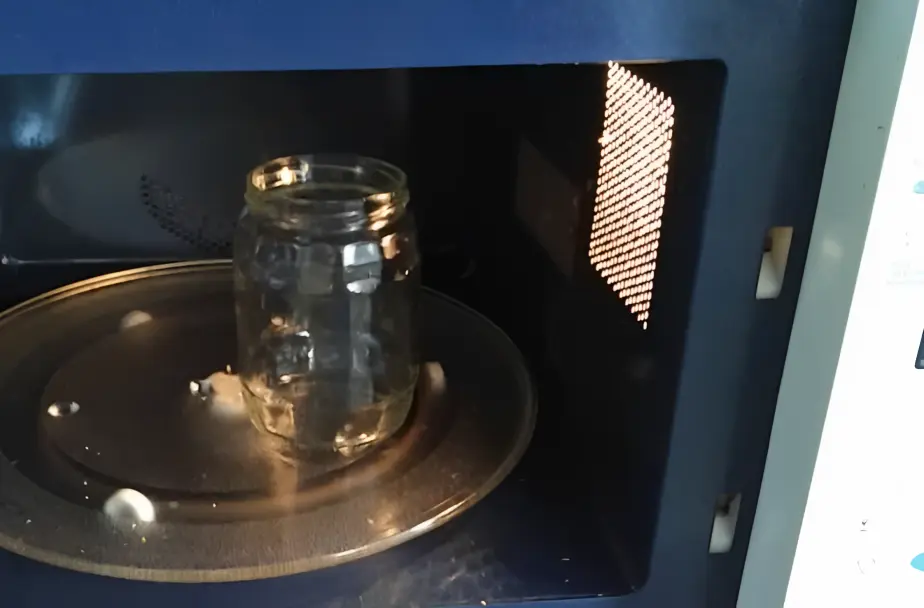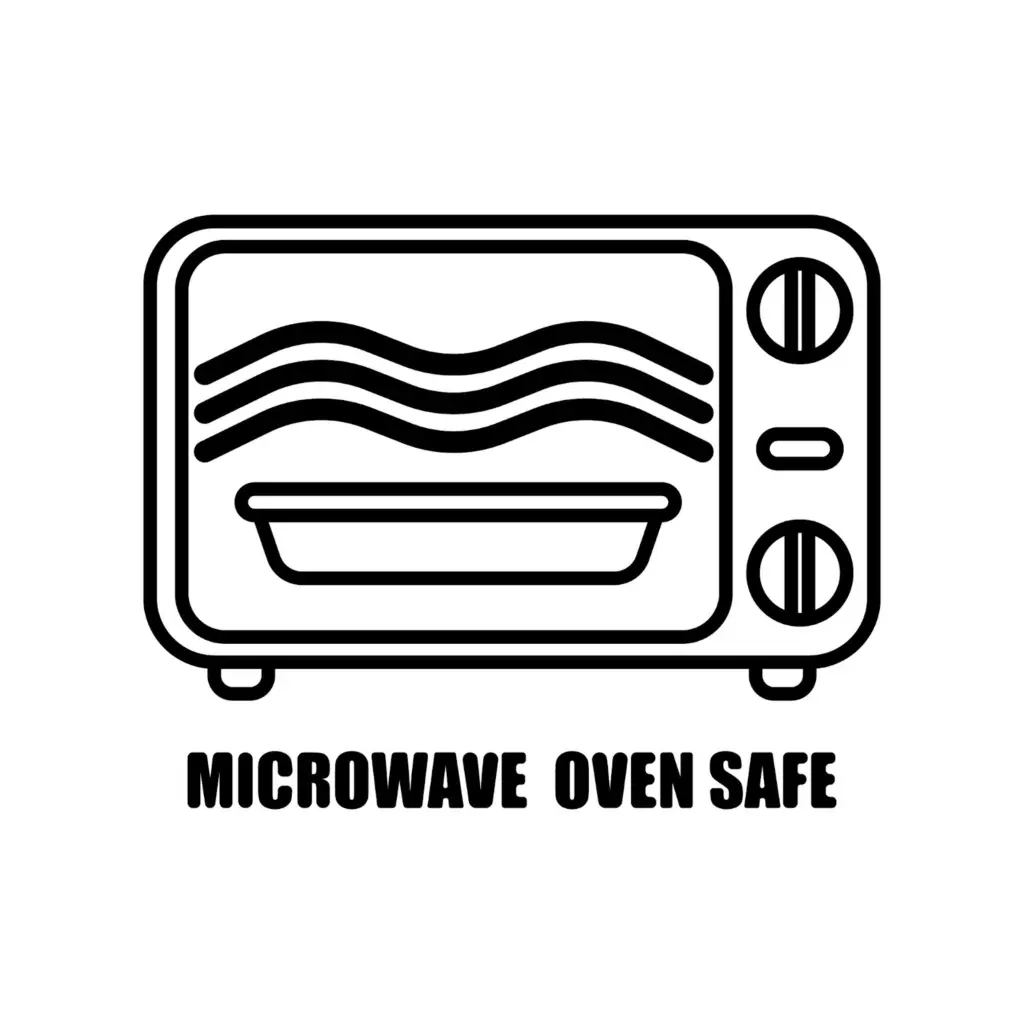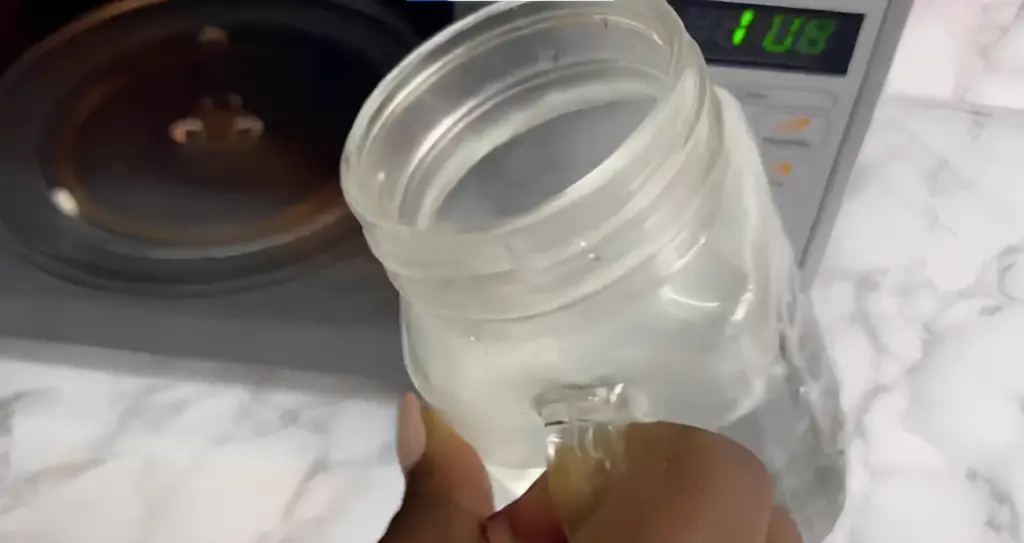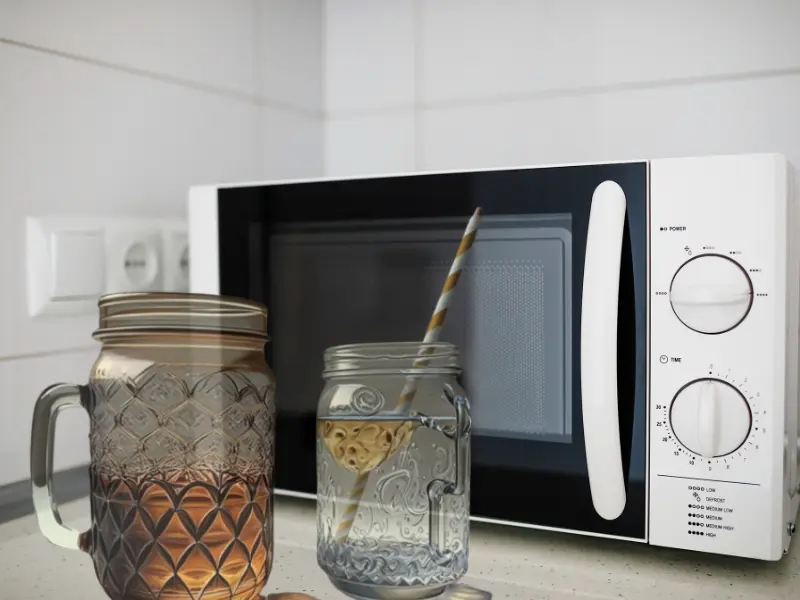Are you wondering whether you can microwave Mason jars to reheat beverages safely?
You can microwave Mason jars if they are microwave-safe, free of cracks or chips, and not decorated with metallic elements. To determine if a Mason jar is microwave-safe, check for a microwave-safe symbol or label on its bottom. If uncertain, you can perform a test to check whether it can absorb the microwave heat.
Below, this article will explain “Can you microwave Mason jars” and how to test them to check if they are safe to use in your microwave.
Can You Microwave Mason Jars Safely?

The Mason jars are usually microwave safe, but you must be careful before microwaving them. Remove the metal lid, as this may cause a spark in the microwave, resulting in a fire. Also, do not overheat the Mason jars or expose them to sudden temperature changes.
Glass jars often react to high heat because they are not tempered enough, so don’t microwave them for more than a few minutes.
How Do I Know If My Mason Jar Is Microwave Safe?

To determine if your Mason jar is microwave safe, look at its bottom and check if it has a symbol microwave with wavy lines or a label that says “Microwave Safe” or “microwaveable.” If you don’t see any specific indications, avoid microwaving the jar to prevent potential health and safety hazards.
Let’s discuss how you can know if your favorite Mason jar is microwave safe for reheating your food.
1. Check The Age Of Jar
Most old or vintage jars are manufactured using materials that may shatter or crack when you put them in the microwave oven. So, it is best not to use them for microwaving.
Some of the new Mason jars are no exception. However, specific phrases like “Improved” or “Special” printed on the box or the jar can help you be sure about their usage in the microwave.
2. Check Microwave Safe Symbol On Mason Jars
Another way to know if your Mason jar collection is safe for microwaving is to look at the symbol imprinted at the bottom. These symbols can be wavy lines or written “Microwave-safe” or “Microwaveable” words, ensuring safe usage.
3. Check The Mason Jar Quality
The material quality of the Mason jars is also an essential consideration in determining whether you can microwave them. So, before exposing your glass Mason jar to microwave radiation, ensure its glass quality is good and has no cracks or chips that could compromise its safety.
Also, avoid using any Mason jar with metallic decorations, as it can cause a spark while preheating foods and beverages that can damage your microwave.
4. See Mason Jar Manufacturer Instructions
When buying a Mason jar, refer to the manufacturer’s guidelines. These instructions may explicitly state whether the jar is safe for microwave use or provide additional precautions otherwise.
How Do I Test Mason Jar For Microwaving?
If you are unsure of your Mason jar’s age or it does not have a microwave-safe symbol, you can perform a test to verify if it is safe for microwaving with these steps:
- Take the Mason jar, and fill it with water, leaving some empty space at the top to prevent overflow during the test.
- Place it in your microwave without the metal lid.

- Configure your microwave to the highest power level and heat the jar for approximately 1 minute.
- Now, carefully remove the Mason jar from your microwave using oven mitts or a potholder to protect your hands.
- Touch the jar slightly to feel if it is excessively hot and the water is a bit cold. If yes, do not use it in the microwave again.
TIP: If the jar passes the above test, change the water and repeat the process while keeping it in the microwave for 2-3 minutes. If the jar is warm to the touch and the fluid is heated well, your container is good for microwaving.
How Long Can You Microwave a Mason Jar?
You should not microwave a Mason jar for more than 5 minutes, as high heat can shatter the glass and damage your microwave oven.
Below is the general guideline for microwaving a Mason jar for sterilization depending on its size:
- 1-liter Mason jar: 1-2 minutes.
- 1-4 liter Mason jar: 3-4 minutes.
- Over 4 liters of Mason jar: 5 minutes.
Can You Put Frozen Mason Jar In Microwave?
You should never put a frozen Mason jar in the microwave. These containers are made from glass, so when you place them in the microwave, the sudden temperature change can cause them to shatter or crack. This is because the rapid heating of the glass creates an uneven thermal expansion, leading to stress within the jar.
So, before microwaving the Mason jar, defrost it in a bowl of cold water. Change the water every 25-30 minutes and wait until the jar’s content is completely defrosted.
Are There Different Types Of Mason Jars?
There are different types of Mason jars depending on their size, mouth diameter, and closer type.
1. Size
Based on the size, you’ll find half-pint (8 oz), pint (16 oz), quart (32 oz), and half-gallon (64 oz) jars in the market.
2. Mouth Diameter
Mason jars are also classified by their mouth diameter, i.e., regular (2.5 inches) or wide (3 inches) jar mouth. The mouth diameter affects how easy it is to fill and spill and what kind of lids and accessories can fit on it.
3. Closure Type
Two main types of closures are screw-top and bail-top. Screw-top jars have a metal lid that screws onto a band on the jar’s mouth. In contrast, the bail-top jars have a hinged lid that clamps down on a rubber gasket to create a vacuum seal.
Conclusion
Can you microwave Mason jars without compromising on health and safety standards? Hopefully, this guide has helped you answer your question.
We’ve also discussed a test for the durability of a Mason jar in the microwave. Furthermore, we’ve explored if you can put a frozen Mason jar in the microwave and the different types available in the market.

